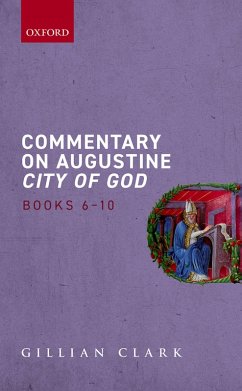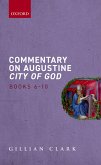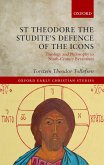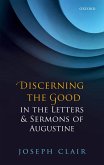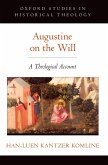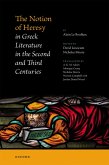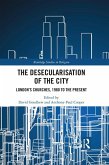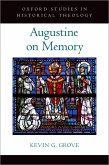This is the second volume in a series of commentaries on Augustine's City of God (De civitate Dei). Books 6-10 are Augustine's answer to those who think that many gods should be worshipped for blessings in the life to come. In Books 1-5 he had replied to those who thought many gods should be worshipped for blessings in this mortal life; he expected this next task to be more challenging, because he must engage with outstanding philosophers who have much in common with Christians. In Books 6-10, he makes the task manageable by selecting very short extracts, all in Latin, from his target authors: on interpretations of Roman myth and cult (books 6-7) the learned Varro, Divine Matters, and Seneca On Superstition; on daimones (Books 8-9) Apuleius, On the God of Socrates, and Asclepius, ascribed to Hermes Trismegistus; on Platonist philosophy (Book 10) translated quotations from Plotinus and Porphyry. Augustine aims to show that the many gods are deceptive demons who want worship for themselves and cannot mediate between mortals and the immortal divine. Especially in Book 10, he contrasts these demons with the good angels who want us to be blessed as they are by worshipping the true God, and with the true mediator Jesus Christ who in his incarnation united humanity with God. Platonist philosophers, Augustine argues, despise the body and aspire to reach the divine by superior intellect; for ordinary people they offer only theurgy, which is dangerous magic. But Christian faith is accessible to all. The coming of Christ and the Church is revealed by the true God in divinely inspired scripture, and Christian worship unites the believer with the self-offering of Christ. Augustine is now ready to move to the second part of City of God, on the origin, course and due ends of the two cities--the city of God and the earthly city--which are intertwined in this world.
Dieser Download kann aus rechtlichen Gründen nur mit Rechnungsadresse in A, B, BG, CY, CZ, D, DK, EW, E, FIN, F, GR, HR, H, IRL, I, LT, L, LR, M, NL, PL, P, R, S, SLO, SK ausgeliefert werden.

